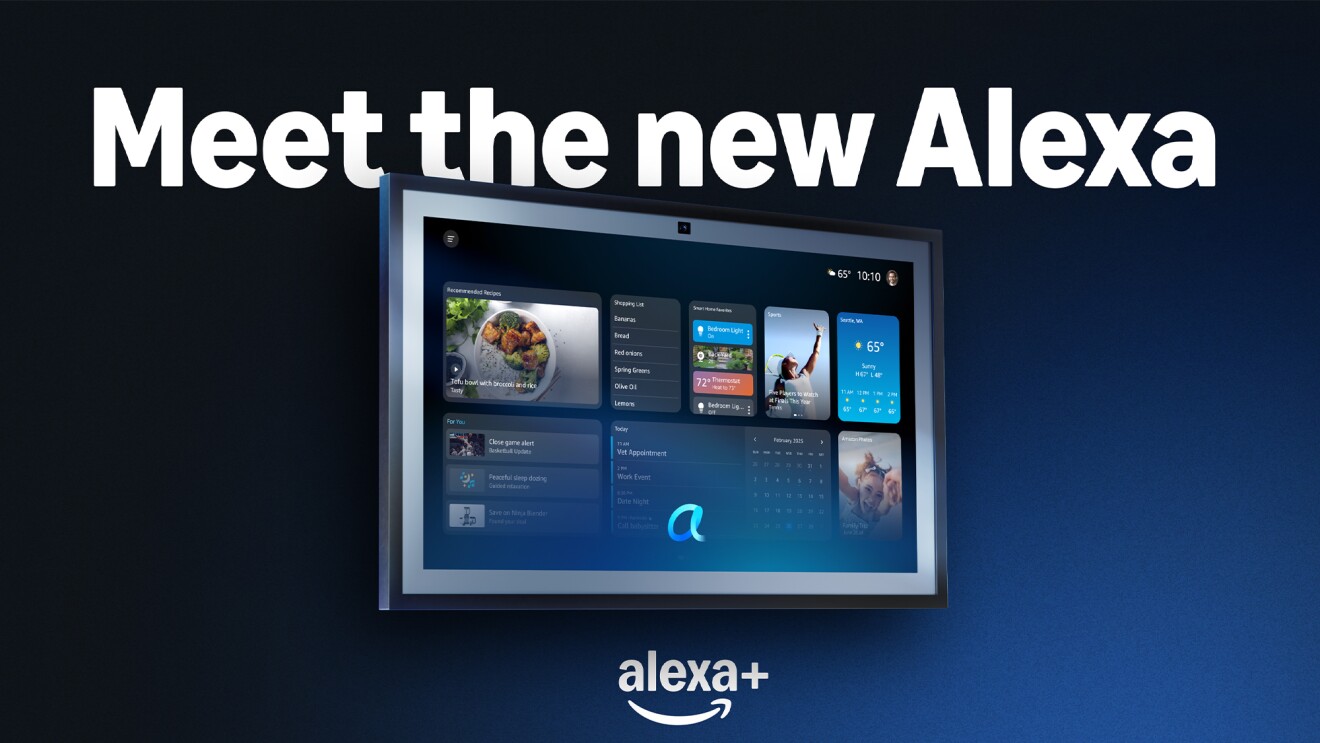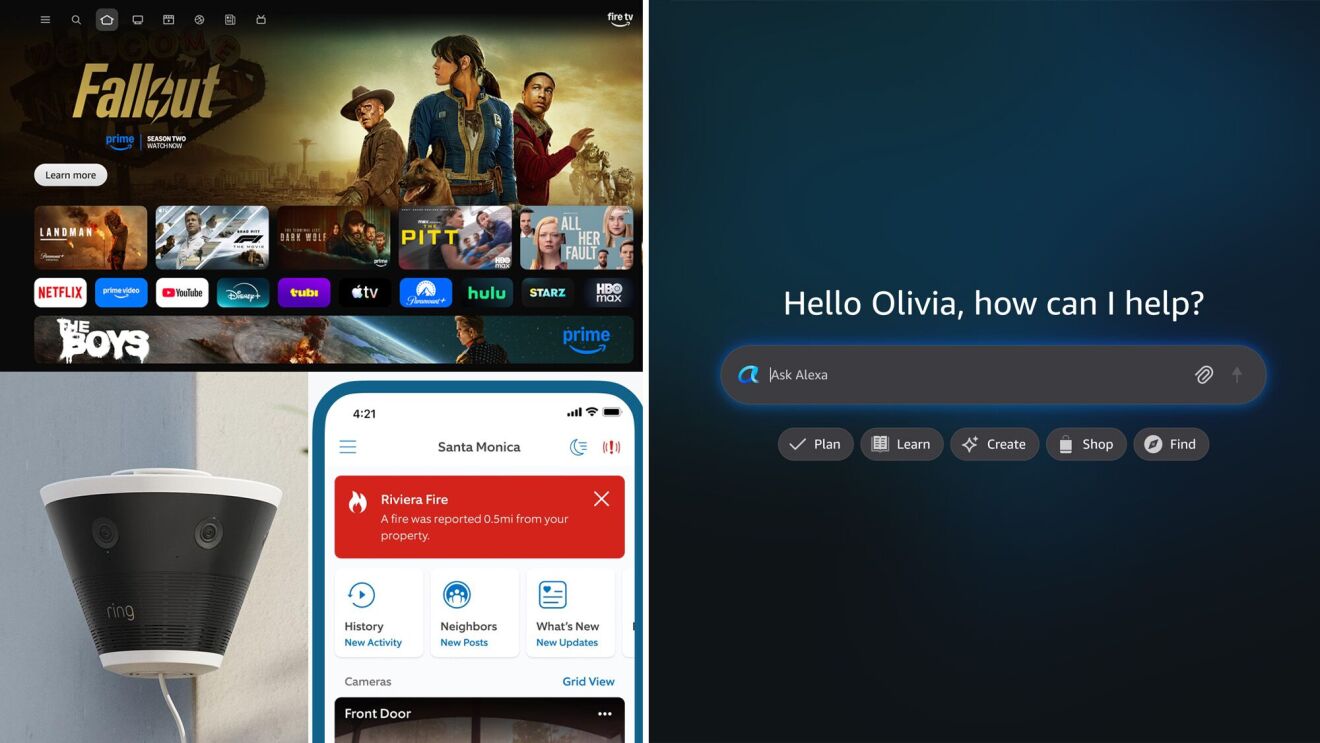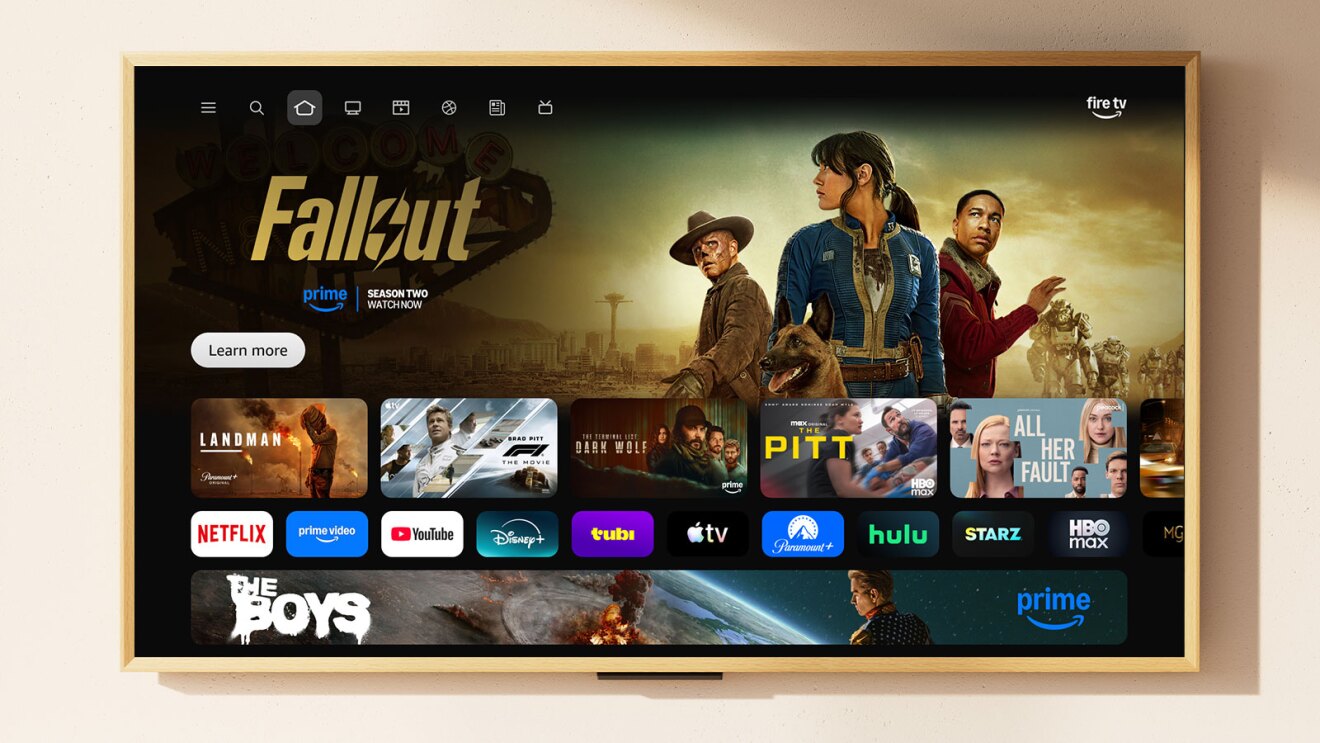Whether you’re in the mood to watch a funny movie with a specific actor whose name you just can’t seem to remember, or you’re looking for a sci-fi TV show with a dark and mysterious plot to keep you guessing ‘til the end, is ready to help make your next streaming decision easier and smarter.
Finding something to watch has never been simpler. You can now search with Alexa by describing what you’re in the mood to watch using natural words and phrases—even if you don’t know the specific title. You can search by topic, genre, actor name, or quote from your Fire TV home screen to get a relevant, personalized list of choices, including options from the streaming apps you’re subscribed to. Making the Fire TV search experience smarter is a continuous journey that evolves as technology and customer needs do.
In the early days of Fire TV, searching for entertainment content was literal, meaning you had to match each word exactly—you had to know either the precise title, actor name, or genre you wanted in order for the search to return relevant results. This was because Fire TV originally used a keyword search system to generate results, which wasn’t ideal for understanding freeform searches.
To make Alexa and Fire TV search even smarter, the team needed to optimize on-screen content search to be able to interact with more natural, everyday language. Jitesh Mehta, senior manager of software development, said that a team of engineers and product experts focused on three big projects to tackle this: 1.) Building a search system beyond keyword-matching; 2.) Harnessing Alexa’s vast knowledge base to enhance Fire TV search results; and 3.) Employing a new ranking machine learning model to improve the order and relevance of results.
Building a truly conversational search experience

To make the customer search experience even more natural, Mehta and his team developed a new semantic system—a type of search that goes beyond keywords in a query, which considers the context of a request. Instead of only looking for exact matches, semantic search engines try to understand the intent behind a search, and the system considers how you ask your question and what kind of content you usually search for to make those distinctions. “For example, if you ask Alexa to search for ‘movies about dog and human friendships,’ a traditional search system might just return popular movies that have dogs in them, as opposed bringing up the movies where the main theme is the emotional connection between dogs and humans,” said Mehta.
This search experience is trained on Fire TV’s extensive entertainment content and app library, including data from IMDb, the world's most popular and authoritative source for movie, TV and celebrity content. IMDb provides instant access to actors, plot points, trivia, and characters that help make Fire TV search even smarter.
Integrating even more Alexa intelligence
To train Alexa to discern the difference between a movie content search and a movie trivia question, the team incorporated advanced semantic search capabilities into Fire TV. Previously, Fire TV search operated using simple keyword matching, so the name of a movie, TV show, or an actor would pull up the results. However, if you asked Alexa about a movie plot point (e.g., "Find the movie where Tom Hanks talks to a volleyball"), the results might not display the relevant movie–Cast Away. To solve this, the team integrated the Fire TV content catalogue and this new semantic search with Alexa’s extensive entertainment knowledge base. Alexa has multiple different information systems, and it’s important that Alexa can understand which one to call on to get the correct response to a customer’s query.
“The team needed to ensure Fire TV search was using the information retrieved by Alexa's Q&A system—which stores a vast database of entertainment knowledge—to be able to accurately answer customer queries about things like plot points. Fire TV search was enhanced to use the natural language interpretation of the question and answers available from Alexa to be able to surface a relevant movie or TV show,” said Mehta.
Making search results even more relevant

Fire TV uses a ranking model to determine which search results are most relevant to a customer’s search request. When you ask Alexa to search for you, the ranking model can quickly analyze the query, and determine which information system is most likely to provide the best results. For example, if you prompt Alexa with, "show me funny movies," Alexa will analyze your intent (finding humor) and recommend relevant comedies. But, if you ask a question like, "Who directed The Godfather?", Alexa might choose a different system to find a direct answer to this specific question, rather than pulling up the movie title.
The more customers use it, the better Fire TV will get at handling freeform searches that require context over time, improving the overall customer experience for everyone.
“AI is evolving, and so is computer power, but content is evolving, too,” Mehta said. “As these changes continue to occur at a rapid pace, our expectations and those of our customers shift with them, which is why we never stop innovating. This is just the beginning for Fire TV search, and we’re excited for the limitless possibilities of where we can take this feature.”
What will you watch next?
Trending news and stories












